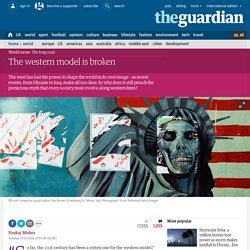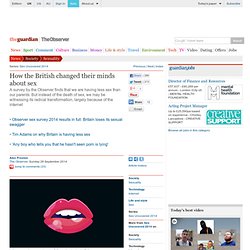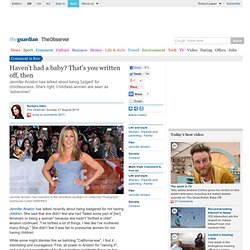

My daughter, my beautiful failure. By all the standard markers, by all the accepted rules and regulations and assessments of secondary school, my daughter left school a failure.

Over the two years of her higher school certificate, she has truanted frequently, she has failed to hand in assignments, she has failed to turn up on time, she has failed to meet uniform requirements, she has failed to attend some of her HSC trial exams, she has exhausted the patience of teachers and pushed to the outer limits the structural sympathies of the public school system. Innumerable official letters outlining her many misdemeanors have kept postmen busy beating a path to our house – we stopped opening them about a year ago. There have been programs of improvement, second chances, third chances, and more. Expulsion has been just around the corner for six months. Lynching of boy underlines how the curse of caste still blights India. Women naturally hate war, unlike men? Think again.
Just six months ago, counterterrorism officials announced their next initiative for preventing young Britons enlisting to fight in Syria: recruiting Muslim women as amateur detectives.

At this point, it was estimated, between 200 and 366 British nationals had volunteered for Islamist duties. Deputy assistant commissioner Helen Ball, the senior national co-ordinator for counterterrorism, told the Guardian what her chosen anti-militarists would be urged to look out for. “Women might see their family members spending more time on the internet,” she said. “They might get very angry about what’s going on in Syria.”
Wouldn’t it make sense to involve the Muslim men, too? And then the queen kissed the princess: fairytales get a modern makeover. And then the queen kissed the princess: fairytales get a modern makeover. From ancient castles to mega-yachts: what history teaches us about the super-rich. In 1774, one of Britain’s wealthiest traders was summoned to parliament to account for profligacy and corruption.

Frustrated by the MPs’ persistent questioning, he told them: “I walked through vaults which were thrown open to me alone, piled on either hand with gold and jewels. Mr Chairman, at this moment I stand astonished at my own moderation.” Nearly two and a half centuries later, another rich and confident man was equally affronted: “There was a period of remorse and apology for banks. The western model is broken. “So far, the 21st century has been a rotten one for the western model,” according to a new book, The Fourth Revolution, by John Micklethwait and Adrian Wooldridge.

Why stop at Isis when we could bomb the whole Muslim world? Let’s bomb the Muslim world – all of it – to save the lives of its people.

Surely this is the only consistent moral course? Why stop at Islamic State (Isis), when the Syrian government has murdered and tortured so many? How the British changed their minds about sex. If, as Philip Larkin claimed, sex began in 1963, it appears to be fizzling to an end in the early decades of the 21st century.

We British, never international avatars of sexual prowess, now seem to be living up to our billing: we are too tired, too stressed, or too drunk to screw. Surveys from both sides of the Atlantic show broadly the same patterns: we're having sex less often and when we do it is less satisfactory than ever before. The myth of religious violence. As we watch the fighters of the Islamic State (Isis) rampaging through the Middle East, tearing apart the modern nation-states of Syria and Iraq created by departing European colonialists, it may be difficult to believe we are living in the 21st century.

The sight of throngs of terrified refugees and the savage and indiscriminate violence is all too reminiscent of barbarian tribes sweeping away the Roman empire, or the Mongol hordes of Genghis Khan cutting a swath through China, Anatolia, Russia and eastern Europe, devastating entire cities and massacring their inhabitants. Only the wearily familiar pictures of bombs falling yet again on Middle Eastern cities and towns – this time dropped by the United States and a few Arab allies – and the gloomy predictions that this may become another Vietnam, remind us that this is indeed a very modern war.
Traditional spirituality did not urge people to retreat from political activity. The myth of religious violence. Richard Dawkins has lost it: ignorant sexism gives atheists a bad name. I became an atheist on my own, but it was Richard Dawkins who strengthened and confirmed my decision.

For a long time, I admired his insightful science writing, his fierce polemics, his uncompromising passion for the truth. When something I’d written got a (brief) mention in The God Delusion, it was one of the high points of my life. So, I’m not saying this is easy, but I have to say it: Richard Dawkins, I’m just not that into you anymore. Are you a summer person? Because the autumn people are already winning. Summer officially ends on Monday and, with it, the wearing of white and that feeling of being on vacation all the time.

So, too, the ascendence of summer people over winter people. The calendar year runs January to January, but for many, that sinking, new-school-year feeling that comes around the first of September is the real start of the new year. How depressed the new season makes you – well, that depends largely on which season you think of as “yours”. Are you a summer person? Because the autumn people are already winning. Haven't had a baby? That's you written off, then. Jennifer Aniston has talked recently about being badgered for not having children.

She said that she didn't feel she had "failed some part of [her] feminism or being a woman" because she hadn't "birthed a child". Aniston continued: "I've birthed a lot of things. I feel like I've mothered many things. " She didn't feel it was fair to pressurise women for not having children. The US government can brand you a terrorist based on a Facebook post. We can't let them make up the rules. The US government’s web of surveillance is vast and interconnected. Now we know just how opaque, inefficient and discriminatory it can be. As we were reminded again just this week, you can be pulled into the National Security Agency’s database quietly and quickly, and the consequences can be long and enduring. Through ICREACH, a Google-style search engine created for the intelligence community, the NSA provides data on private communications to 23 government agencies. More than 1,000 analysts had access to that information.
This kind of data sharing, however, isn’t limited to the latest from Edward Snowden’s NSA files. Islamic State requires Saudi Arabia to rethink its support for extremism. Islamic State (Isis), now being described in some quarters as “the most capable military power in the Middle East outside Israel”, is at the top of the global agenda. Naturally, there is discussion of its origins and backers. It is notable that, in particular, the Saudi government has scrambled to deny any links to the group. In the past two weeks, the usually low-profile Saudi ambassador in the UK sent a strongly worded letter to the Guardian. The embassy issued a press release to the same effect, and last week the grand mufti of Saudi Arabia himself made a statement condemning Isis. This follows a $100m contribution to a UN anti-terror programme. Saudi Arabia is increasingly feeling the heat of the Sunni hardline blowback.
The clergy is a powerful force in Saudi Arabia. Johnson calls for 'guilty until proven innocent' for suspected terrorists. Boris Johnson has called for the presumption of innocence to be reversed in cases where Britons travel to Iraq or Syria and said he wants the jihadist who beheaded an American journalist to be killed in a bomb attack.
The Mayor of London, who has overall responsibility for the Metropolitan Police, said legislation should be introduced so that anyone visiting those countries would be automatically presumed to be terrorists unless they had notified the authorities in advance, and joined growing calls for Britons fighting abroad to be stripped of their citizenship. Johnson said Britain must take on the Islamic State (Isis) and “try to close it down now”, warning that doing nothing would mean a “tide of terror will eventually lap at our own front door”. British intelligence agencies are close to identifying the killer of US journalist James Foley who has been dubbed “jihadi John”, according to the UK’s ambassador to the US, Sir Peter Westmacott.
The Isis leader's vision of the state is a profoundly contemporary one. A book that changed me: we want your choices. All this month we are asking writers, critics and bibliophiles to choose the book that changed them. Colin Dexter, Margaret MacMillan, Owen Jones and Emma Brockes have already had their say; Andrew Motion, Diana Athill, David Kynaston, Linda Grant, Lucy Mangan and many others will be choosing their life-changing book over the coming weeks.
But is there a book that changed your life? This thread will be open until the end of the month to give you a chance to say which book changed your view of the world. Is there a book you especially love or which you return to again and again? A book that changed me: we want your choices. How peaches and propaganda are helping to shape the new world order. Italy is back in recession and approaching deflation; Germany's economy has shrunk and France stagnates. In Britain, we have a record number of jobs but plummeting real wages. The daily quiz: bells and whistles. Yubari, Japan: a city learns how to die. Fields Medals 2014: prizes for maths work that few of us can grasp. When I interviewed the 2010 Fields medallist Cédric Villani a couple of years ago, I asked him how many people understood his work. My top five… dystopian novels for teens.
The 10 best Dystopias. Sick of this market-driven world? You should be.